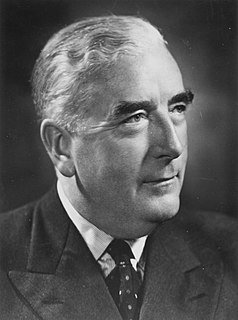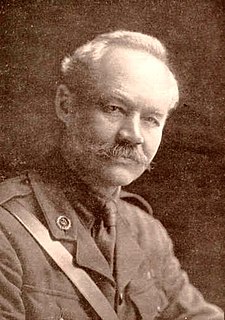A Quote by Oswald Chambers
If we have never had the experience of taking our commonplace religious shoes off our commonplace religious feet, and getting rid of all the undue familiarity with which we approach God, it is questionable whether we have ever stood in his presence.
Related Quotes
Nothing fires the warrior’s heart more with courage than to find himself and his comrades at the point of annihilation, at the brink of being routed and overrun, and then to dredge not merely from one’s own bowels or guts but from one’s discipline and training the presence of mind not to panic, not to yield to the possession of despair, but instead to complete those homely acts of order which Dienekes had ever declared the supreme accomplishment of the warrior: to perform the commonplace under far-from-commonplace conditions.
It is taboo in our society to criticize a persons religious faith... these taboos are offensive, deeply unreasonable, but worse than that, they are getting people killed. This is really my concern. My concern is that our religions, the diversity of our religious doctrines, is going to get us killed. I'm worried that our religious discourse- our religious beliefs are ultimately incompatible with civilization.
Faith, then, generically, is confidence in a personal being. Specifically, religious faith is confidence in God, in every respect and office in which He reveals Himself. As that love of which God is the object is religious love, so that confidence in Him as a Father, a Moral Governor, a Redeemer, a Sanctifier, in all the modes of His manifestation, by which we believe whatever He says because He says it, and commit ourselves and all our interests cheerfully and entirely into His hands, is religious faith.
No one can write their real religious life with pen or pencil. It is written only in actions, and its seal is our character, not our orthodoxy. Whether we, our neighbor, or God is the judge, absolutely the only value of our religious life to ourselves or to anyone is what it fits us for and enables us to do.
The underlying foundation of all religion is performance - whether it's a tribal dance around a campfire to satisfy the fire god, or a dead religious activity performed week after week by an evangelical Christian with the intent of impressing his God. It's all religious performance, and God isn't impressed by our performance. What impresses Him is faith.
The unconscious is the only available source of religious experience. This in certainly not to say that what we call the unconscious is identical with God or is set up in his place. It is simply the medium from which religious experience seems to flow. As to what the further cause of such experience might be, the answer to this lies beyond the range of human knowledge.
Spirituality is an inner fire, a mystical sustenance that feeds our souls. The mystical journey drives us into ourselves, to a sacred flame at our center. The purpose of the religious experience is to develop the eyes by which we see this inner flame, and our capacity to live its mystery. In its presence, we are warmed and ignited. When too far from the blaze, we are cold and spiritually lifeless. We are less than human without that heat. Our connection to God is life itself.
It is commonplace of all religious thought that the man seeking visions and insight must go apart from his fellows and live for a while in the wilderness. If he is of proper sort, he will return with a message. It may not be a message from the god he set out to seek but even if he has failed in that particular, he will have had a vision or seen a marvel and these are always worth listening to or thinking about.
It was, of course, a lie what you read about my religious convictions, a lie which is being systematically repeated. I do not believe in a personal God and I have never denied this but have expressed it clearly. If something is in me which can be called religious then it is the unbounded admiration for the structure of the world so far as our science can reveal it.






































